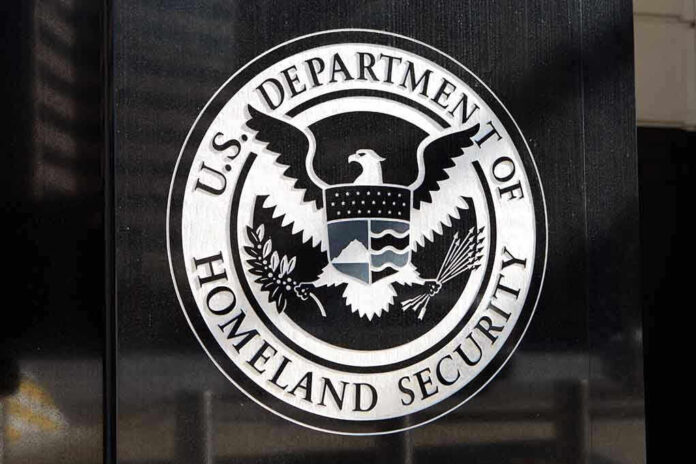The Department of Homeland Security’s biting response to Mahmoud Khalil’s $20 million lawsuit against the Trump administration has ignited a fresh debate over immigration, campus activism, and the boundaries of government power—reminding Americans just how far we’ve come from the days of open borders and unchecked chaos.
At a Glance
- Mahmoud Khalil, pro-Palestinian activist and former Columbia grad student, sues Trump administration for $20 million over his detention and attempted deportation.
- DHS publicly rebukes the lawsuit, calling Khalil’s claims “absurd” and defending the administration’s actions as lawful and necessary for public safety.
- The legal battle spotlights the administration’s aggressive immigration and protest crackdowns, reigniting national controversy over free speech and campus unrest.
- Khalil’s case could set a precedent for noncitizen activists challenging what they call political retaliation by the U.S. government.
DHS Hits Back: Lawsuit Sparks National Showdown Over Immigration and Campus Activism
Mahmoud Khalil, who rose to fame as a leader of the pro-Palestinian protests at Columbia University, has launched a $20 million claim against the Trump administration, alleging he was wrongfully detained for 104 days and targeted for his political speech. After months in ICE detention and missing the birth of his child, Khalil and his supporters have framed his ordeal as a dangerous escalation—government using its power to silence dissent. But the Department of Homeland Security isn’t mincing words. In a fiery statement, DHS spokesperson Tricia McLaughlin dismissed Khalil’s accusations as “absurd,” arguing that it was Khalil who “terrorized Jewish students on campus” and that the administration acted “well within its statutory and constitutional authority.” Both sides agree on the timeline, but the motivation—and the future of free speech for noncitizen activists—remain at the heart of an intensifying national argument.
Khalil’s lawsuit is more than a personal fight; it’s a test case for whether the federal government can detain, deport, or punish noncitizens for leading protests that offend the political class. While Khalil’s legal team, the Center for Constitutional Rights, insists this is about civil rights and due process, the administration’s defenders see it as a necessary stand against imported radicalism and campus lawlessness. The stakes are high for universities, activists, and government officials alike.
Trump Administration Doubles Down on Immigration Crackdown and Ideological Screening
Since returning to power in 2025, President Trump’s administration has wasted no time tightening the screws on immigration, border security, and the ideological screening of visa applicants. The border is more secure now than it’s been in decades, with encounters at all-time lows and the military deployed to enforce new executive orders. The Khalil case is a high-profile example of the new approach: noncitizen activists who cross the line—by the administration’s standards—can expect detention, deportation, and a public rebuke. DHS officials say Khalil’s detention was not political retaliation, but a straightforward response to visa violations and public safety concerns. They argue that Khalil’s protest leadership and alleged involvement in violent, antisemitic activities made him a legitimate enforcement target. Secretary of State Marco Rubio echoed this, stating publicly, “If you told us when you applied for your visa… we would deny your visa.” Khalil’s supporters, meanwhile, claim the crackdown is a dangerous overreach, chilling free speech and targeting political opponents.
Legal experts note that Khalil’s use of the Federal Tort Claims Act is rare and faces long odds—especially in the context of immigration. Still, if he succeeds, it could open the door for other activists to sue for government retaliation against protest and speech. The administration’s critics see this as a civil liberties crisis, while its supporters view it as long-overdue accountability for those who flout American laws and values.
Campus Unrest, Civil Liberties, and the Cost of Order: What’s Next?
The Khalil saga has poured gasoline on the simmering fire of campus unrest, immigration debate, and national security concerns. Jewish student groups and campus security advocates point to Khalil’s actions as evidence of growing antisemitism and a need for firmer enforcement. Pro-Palestinian activists and civil liberties organizations counter that the administration’s response is a naked attempt to suppress dissent and scapegoat immigrants. Universities—caught in the crossfire—are facing renewed calls to clarify their positions on protest, speech, and compliance with federal law.
Financially, the case could cost taxpayers millions if Khalil prevails. Politically, it’s already become a rallying point: for those who want to see the government enforce the law and protect citizens, and for those who fear the government is trampling on rights in the name of security. The lawsuit is just beginning, but the debate it’s fueling will shape the future of campus activism, noncitizen rights, and America’s willingness to draw hard lines on who gets to stay—and who gets shown the door.
Sources:
Fox News: DHS fires back after Mahmoud Khalil targets Trump admin for $20M over detention
ABC News: Mahmoud Khalil seeks $20M, apology from Trump administration
CBS News: Mahmoud Khalil, Columbia protests, Trump lawsuit











